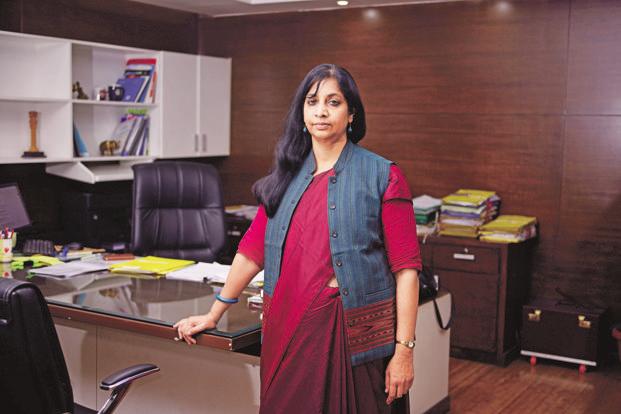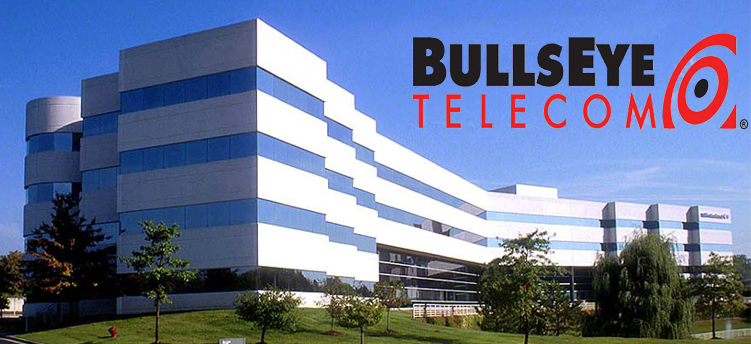Telecom Secretary in India, Aruna Sundarajan expressed concerns about the country’s lack of quality mobile network services. She pointed out the fact that more towers and fiberisation is needed to follow the growth of subscribers. She said, during the second 5G India conference, “In a country where data is growing at 500 per cent, we need much more infrastructure. You need at least double the number of towers, at least double the size of fibre. Otherwise, where will the quality come from? So, they (operators) are working on that We are driving down hard on the service quality areas. We are beginning to see visible changes as a result of it. But it is not enough.” In a situation where call drops occur more often, falling service quality is concerning users and professionals. Manoj Sinha, the Telecom Minister, replied by confirming that the government is committed to “ensure quality of…
The investment required to upgrade a network to support standalone 5G technology is important. JP Morgan think this is the reason why Telecom companies stocks did not do so well last year. There is a serious concern that the investment might not be as effective as expected. The lack of return put an important shade on some valuation for some asian (China, Japan and South Korea) and Australian telecommunications stocks. Those worries could be explained as the daily applications and advantages of 5G technology are yet to be seen and to be invented. James Sullivan,head of Asia ex-Japan equity research at J.P. Morgan explained “It’s not really about faster download speeds,” he said. “It’s about internet of things, autonomous vehicles and things of that nature for which no one understands a monetization case for networks yet.” 5G will not only be customer centered but also will help companies in processing…
In a strange turn of events, the American government has been instructed by President Trump, to help Chinese tech giant ZTE Corp. The problems started for ZTE when they were caught shipping U.S. goods to Iran. The U.S. Commerce Department then prevented U.S. companies from doing any trade with ZTE. This decision literally crippled the company, forcing Donald Trump to step in and take a decision. In a recent tweet President Trump expressed its concerns and his will to find a solution. https://twitter.com/realDonaldTrump/status/995680316458262533 The ban on doing trade with U.S. companies is supposed to last seven years. ZTE already paid a $1.2 billion in fine for that case. Recently, American delegations in visit in China were asked about this issue by Chinese officials, leading to Trump’s decision. ZTE currently employs 70,000 people, and earlier this month, it had to put on hold its main operations.
CTG (China Telecom Global) and Liquid Telecom (a pan-African telecom company) signed a deal to collaborate in the development of network solutions and services. In Johannesburg, Liquid Telecom’s headquarter held the signing ceremony between the Chinese and the African companies. Senior Representatives from China Telecom Donald Tan and Changhai Liu, and Liquid Telecoms CEO Nic Rudnick, and Chief Business Development officer Willem Marais, were present for this event. The two companies will be able to provide to their customers an extended coverage on those two parts of the world. “With more than 50 countries in the region, Africa is nonetheless the booming new market with the highest development rate just after Asia, and a very important market for CTG.” said Changhai Liu. As the Managing Director of China Telecom (Africa and Middle East) he also added, “This collaboration will enable both CTG and Liquid Telecom better serve our customers and…
BullsEye Telecom has entered the VoIP based Key System market. Founded in 1999 in Michigan, BullsEye started by focusing on its local market. Since then, they provide SD-WAN, VoIP, broadband, and POTS to customers across the U.S. They acquired an experience in converting Plain Ordinary Telephone Service (POTS) to VoIP lines. It was able to be a leader company in the U.S. as a multi-location communications solutions provider. They announced yesterday the launch of its VoIP Based key system. Evan Branstnern, network endpoint engineer, explains: “The goal with BullsEye’s VoIP Key System was to replicate a phone system that people are used to while at the same time integrate the latest technology and best practices that are reflected in a VoIP-based product.” This technology will let users park calls with just a button, and then see which line is parked or available. It also let calls being picked up from…
China Telecom (China Telecommunication Corporation) and HGC (formerly Hutchinson Global Communication) will be working together in building a carrier-to-carrier fiber optic connection on the Hong Kong-Zhuhai-Macau Bridge. HGC, founded in 1992 under British ruling, is the leader in fixed-line operators. It also has an extensive number of infrastructures outside of Hong Kong. It is also one of Hong Kong’s main Wi-Fi provider with 29,000 hotspots. It is now owned by I Square Capital, under Asia Cube Global’s infrastructure. On the other hand, China Telecom is the most important state-owned telecommunication company in China. It manages the third largest broadband network in the world. Their internet offers has 160 million subscribers, and the customers’ number of their mobile service is 260 million. This Bridge connects Zhuhai, up north Macau, Macau itself and Hong Kong. It is set to open for vehicles on July 1rst 2018. It will also be used for…
The battle over Telecom Italia seems to have to come to an end, as shareholders were called to elect a new board. Telecom Italia’s directors resigned last March. Paul Singer, head of Elliott Management, an activist fund, was successful to get two thirds of the seats. He won the battle over the French conglomerate, Vivendi. Despite only have 9% of the shares, Elliott was able to impose its team over Vivendi that possesses 24% of Telecom Italia. By pointing out the way Vivendi failed shareholder’s interest in Telecom Italia, Singer was able to get a vote in which they had two options. They could either pick up a board composed of ten Italian business personalities selected by Elliott, or keep a team made of Vivendi’s CEO and its employees for the most part. After that loss, Vivendi stated that it would “take all measures necessary to preserve its value and…
In India, the TRAI (Telecom Regulatory Authority of India) recommended that providers will be allowed to offer app-based VoIP services through Wi-Fi. Those calls will be considered the same way as classic calls. Thus the operators will have to have to follow the rules forme the TRAI. The consequences are interesting for a country that can be subject to issues on phone connectivities to the network. With this recommendation, you can now have the service from your regular provider with one phone number, and get the app of that same company, and use the same number for both. However, you can also download the app from another provider and get another phone number for VoIP, and use it through Wi-Fi. The infrastructures in India, using circuit switch, was not seen as efficient enough for VoIP, but the issues on call drops needed to be addressed. This explains why the TRAI…
Negotiations started recently between Microsoft and Apple on one side, and UAE Telecoms controllers on the other, in order to check if the ban on Skype and FaceTime could be lifted. As Hamad Al Mansoori, head of the TRA (Telecommunications Regulatory Authority), the “discussions are still ongoing”. According to arabic news Al Ittihad, those talks are a part of the two companies plan to extend their business in that part of the world. The goal of the UAE is to keep good relations with Microsoft and Apple, as the first is launching a data center in the UAE in order to cover the entire region. Etisalat and Emirates Integrated Communications have applications that offer similar features, called Botim and C’Me. Al Mansoori says that the number of people using those services are increasing. The main difference is that those apps are paid-for video applications. The telecoms in the UAE are…
French researchers are starting to work on the blockchain! Inria, Télécom ParisTech, Télécom SudParis and SystemX signed a framework agreement on Tuesday March 6th, to coordinate their research efforts in the blockchain area. Called “Bart” (Blockchain Advanced Research & Technologies), this initiative will last for six years and will mobilize thirty researchers. Its aim is to remove the technological barriers that slow down the deployment of blockchain-driven data storage, a technology which is currently attracting the interest of many industries. Three main challenges will be addressed: 1 – Scaling up In one second, six or seven transactions took place on the Bitcoin blockchain, versus several thousand for the Visa credit card system. This slowness limits the use of the blockchain on a larger scale. The problem is due to the validation technique required for transactions, with transactions being grouped into blocks that must be validated by a computer calculation process called mining. Typically, it takes about…













